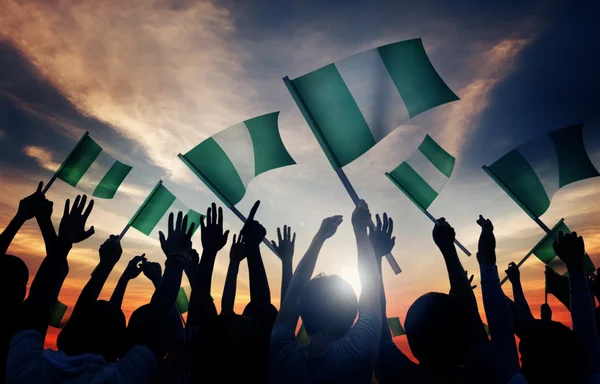
Why Nigeria Might Not Get Better dr. Mark
Nigeria, a country blessed with abundant resources, diverse cultures, and a population full of potential, is a paradox. Despite all the promise, there seems to be a consistent failure to harness its true power. The dreams of a prosperous, peaceful, and united Nigeria continue to slip further away, as deep-rooted issues threaten the nation's future. And as hard as it may be to accept, there's a growing possibility that Nigeria might not get better—at least not in the ways we hope. This isn’t just about bad leadership or economic downturns. It’s about the systemic destruction, the mistrust, the constant violence, and the gross disobedience to Natural laws that continue to plague the nation. These are the foundational issues that prevent Nigeria from reaching its potential. 1. Leadership Crisis — The Continuation of Self-Interest Nigeria’s leadership problem is well-known. Every election cycle promises change, but the reality is often far from what’s promised. Leaders, at every level, often place personal gain above public service, resulting in widespread corruption, poor governance, and a general lack of accountability. For many, the hope that “tomorrow will be better” is diminishing. Power has remained concentrated in the hands of a few, and those in power continue to repeat the mistakes of past governments, leaving the country in a perpetual state of stagnation. However, there is an even darker undercurrent in Nigeria's leadership: manipulation and neglect. While the rest of the nation suffers, leaders continue to manipulate ethnic divisions, taking advantage of the people's grievances to maintain power. These leaders don't just neglect their responsibilities—they exploit the weaknesses of their own people, using manipulation, deceit, and false promises to further their own interests. This division and self-interest slow the country's progress and ensure the continuation of the status quo. 2. The Systematic Destruction of the Eastern Region There is a systemic destruction occurring in the Eastern part of Nigeria, and it cannot be ignored any longer. The southeast has been marginalized for decades, suffering from neglect, underdevelopment, and a severe lack of investment in infrastructure. This deliberate underdevelopment is not just a result of bad policies; it is a calculated move to suppress a region that has long been at the forefront of Nigeria's economic and cultural development. While the rest of the country benefits from access to national resources, Eastern Nigeria continues to suffer from high levels of poverty, lack of adequate infrastructure, and limited opportunities for growth. This exclusion has led to rising dissatisfaction and frustration among the people of the region, fueling the belief that the Nigerian state has failed them. What’s even more concerning is the constant wasting of innocent blood in the region. The ongoing violence, government military presence, and clashes between security forces and local groups are clear signs of the disrespect for life and human dignity. Innocent citizens are caught in the crossfire of political and military maneuvering. While the leaders of the country sit in comfort, innocent people continue to die, creating a nation of grief, loss, and unresolved trauma. 3. Corruption — A System of Abuse and Exploitation Corruption in Nigeria isn't just about a few bad apples in government; it is woven into the very fabric of the nation's political and economic systems. From the highest offices to local government officials, corruption is seen as business as usual. Politicians and officials exploit public trust for personal gain, while the country remains underdeveloped. Even the police, military, and judiciary, the institutions designed to protect citizens, are often involved in fraudulent activities. The manipulation of the masses and abuse of power have become the norm. The system allows those in power to enrich themselves while the people continue to suffer. Until this deep-rooted corruption is addressed, Nigeria will continue to struggle in every sector—be it healthcare, education, security, or infrastructure. 4. Disobedience to Natural Laws — The Core of the Nation’s Struggles One of the most profound reasons Nigeria might not improve is the gross disobedience to Natural laws. These are the fundamental principles that govern the welfare of any society—justice, fairness, truth, kindness, and respect for human life. When a nation strays from these laws, chaos ensues. Nigeria’s political and social systems are rife with a disregard for these principles. There is no greater violation of Natural law than the constant disregard for justice and equity. The poor and vulnerable are often subjected to exploitation by the wealthy, powerful elite. Corruption, favoritism, and nepotism override fairness. Leaders make decisions based on selfish interests, robbing the people of their fundamental rights to life, liberty, and opportunity. The system encourages dishonesty while punishing those who seek truth. Natural law tells us that when the masses are denied justice, it creates an atmosphere of resentment, anger, and distrust. The country's inability to uphold justice in its courts, its constant neglect of the most vulnerable, and the destruction of lives for personal gain result in an inevitable decay of trust in the system. 5. The Lack of Social Cohesion — Fragmentation and Division Nigeria is a country of immense diversity, but that diversity has become more of a curse than a blessing. The country is split along ethnic and religious lines, leading to a constant struggle for dominance rather than collaboration. From the Niger Delta to the northeast, from the southwest to the southeast, people are divided, and this fragmentation weakens the nation as a whole. Ethnic tensions are used as a tool by leaders to divide and rule, while religious differences are manipulated to create divisions that serve the interests of the few. These divisions ensure that solidarity for a collective national cause remains out of reach. The unity required for national progress is lost, and Nigeria continues to fracture under its own weight. Until this unity is realized, the country will always remain at war with itself. Conclusion — A Nation Stagnating in Its Own Sins Nigeria stands at a crossroads, but it is a crossroads filled with both danger and possibility. The nation is rife with systematic destruction, corruption, and a disregard for Natural laws, all of which continue to poison the nation from within. The Eastern region suffers from marginalization and violence, while the leaders of the country turn a blind eye to the suffering of their people. The people of Nigeria are losing hope, and the country risks falling deeper into a cycle of stagnation. Yet, despite all this, there is still hope. Change is possible, but it requires a collective effort from all Nigerians—leaders, citizens, and institutions—to reject corruption, embrace justice, and unite beyond ethnic and religious divides. Only by realigning with Natural laws and putting people above personal gain can Nigeria start to heal and rise from the ashes of its fractured past.

Comments (0)
No comments yet. Be the first to comment!